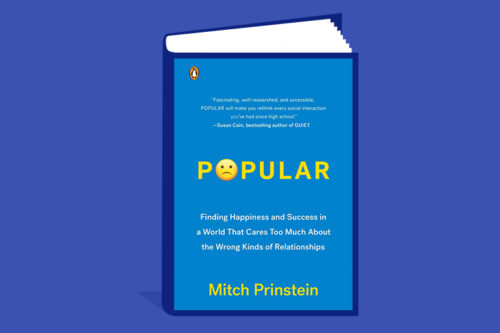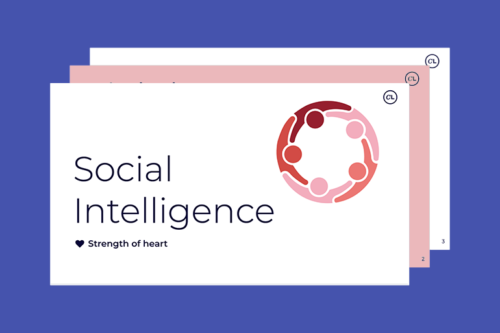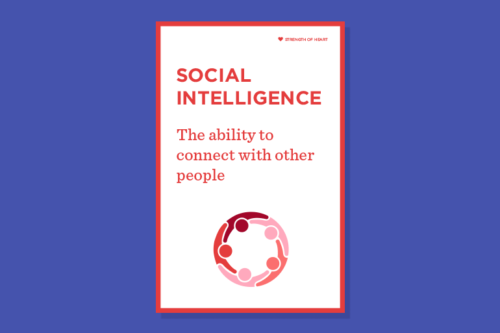Social Intelligence
The ability to connect with other people
 Strength of heart
Strength of heart“Human beings are social creatures….[S]imply to exist as a normal human being requires interaction with other people.”
—Atul Gawande
Why does social intelligence matter?
Social intelligence is as important as IQ when it comes to happiness, health, and success. Empathetic people are less likely to experience anxiety, depression, and addictions later in life. They are also more likely to be hired, promoted, earn more money, and have happier marriages and better-adjusted children.
Pulse Check
Think about yourself. How many of these things are true?
- I have a lot of relationships that are mutually beneficial, enjoyable, and supportive.
- Most of the time, I can tell how other people feel and have a good idea about how to respond appropriately.
- My relationships make me feel good about myself.
- The people in my life help me be my best.
How do I encourage social intelligence in others?
Model it.Wait your turn before speaking, and when you speak, acknowledge others’ points of view: “I see why you look at things this way, and it makes sense why you do. But I have a different perspective.” Treat others’ feelings with curiosity and validation, not frustration or judgment.
Celebrate it. Notice when someone made others feel included and valued: “It was nice of you to make sure the younger kids had playing time in the game, so they all felt like they had a role.” Encourage teamwork and loyalty over hierarchy and competition. Reframe conflict as an opportunity to better understand how deeply reasonable people may feel about opposing views: “Our neighbors voted for another candidate, but we all care about the good of the country; we just have different ideas of how to achieve it.”
Enable it. Create opportunities to help everyone feel equal, for example by giving even young family members responsibilities or a say in decision-making, or allowing students to vote on a classroom activity. Environments in which everyone feels needed and consistently acknowledged help reduce victimization and increase achievement and productivity.
About the Author
Tips

Invest in Connection

Knowledge Transfer
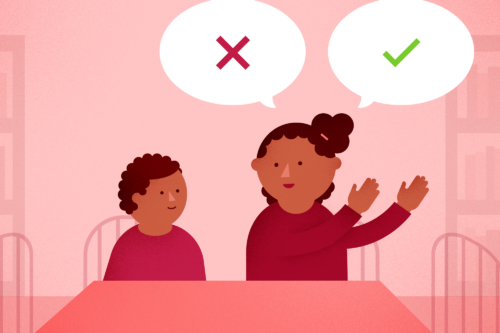
Getting to Yes
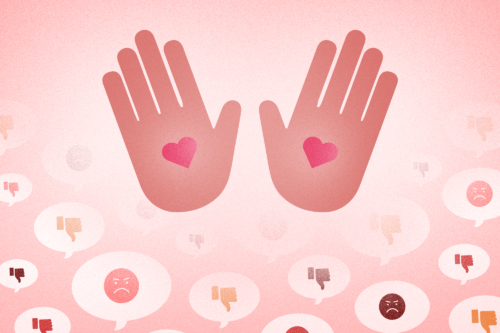
Alter Ego
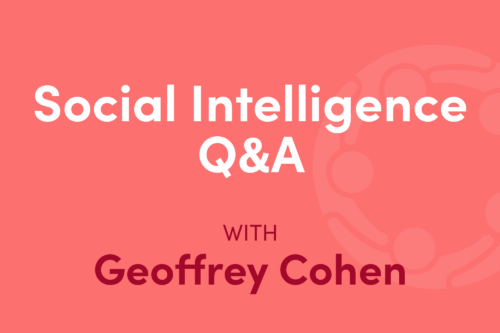
Longing to Belong

Through the Eyes of a Child
Learn More
Character is more than just social intelligence.
There are many other strengths of heart, mind, and will.
LEARN MORE ABOUT CHARACTER


